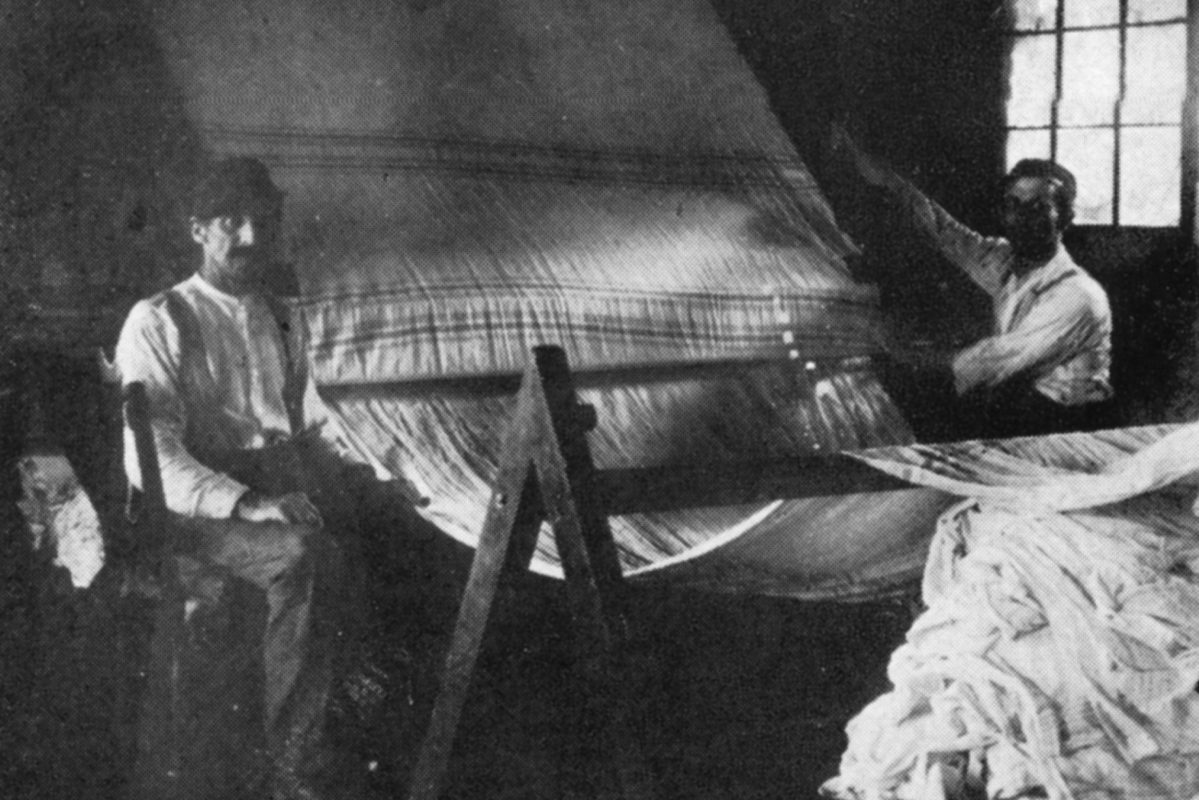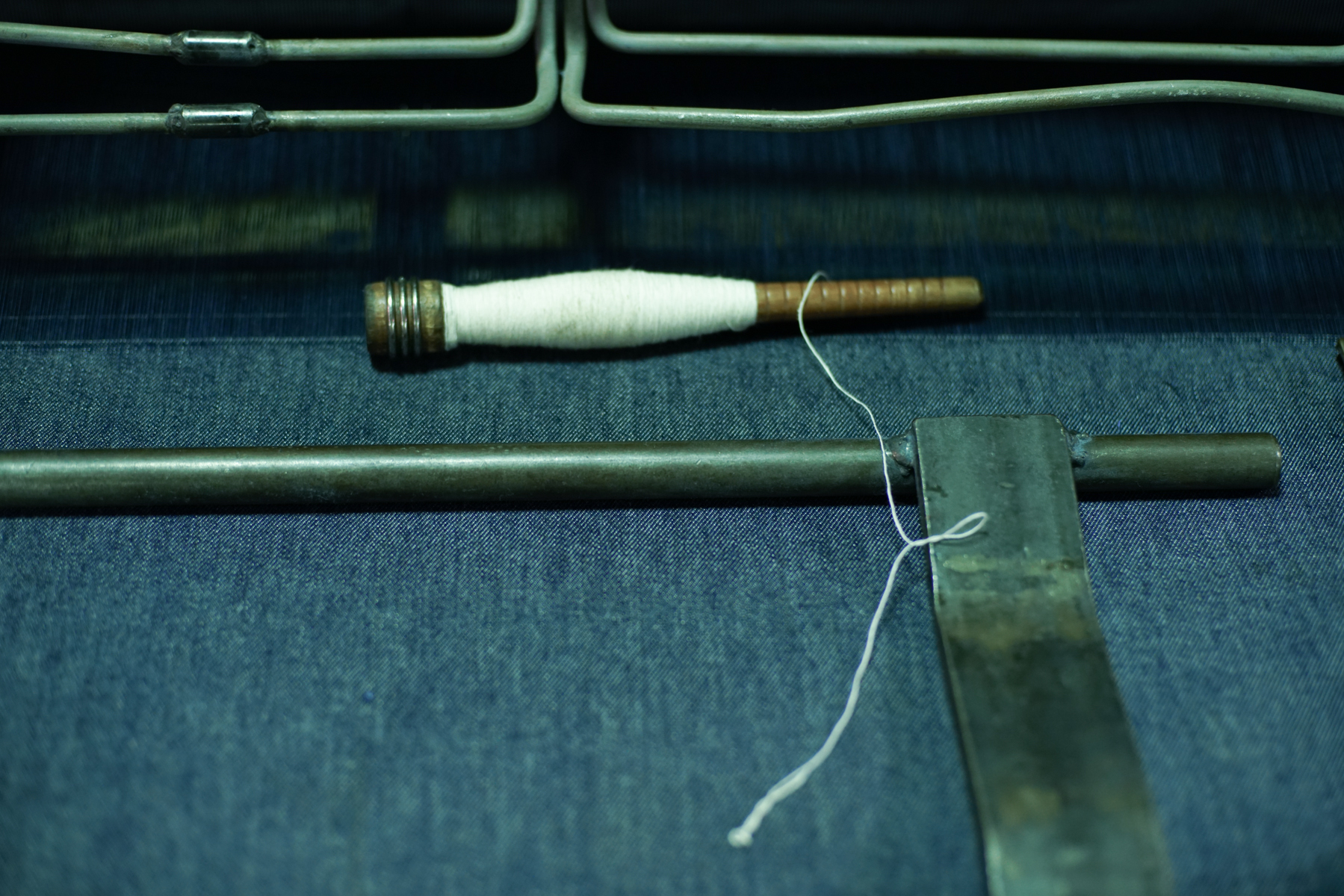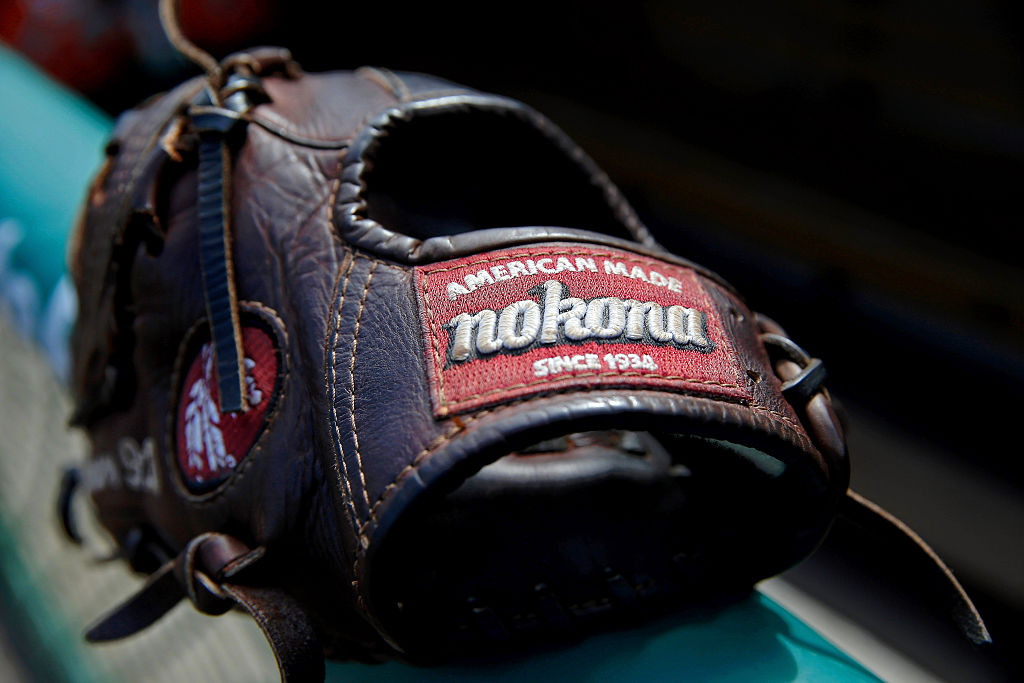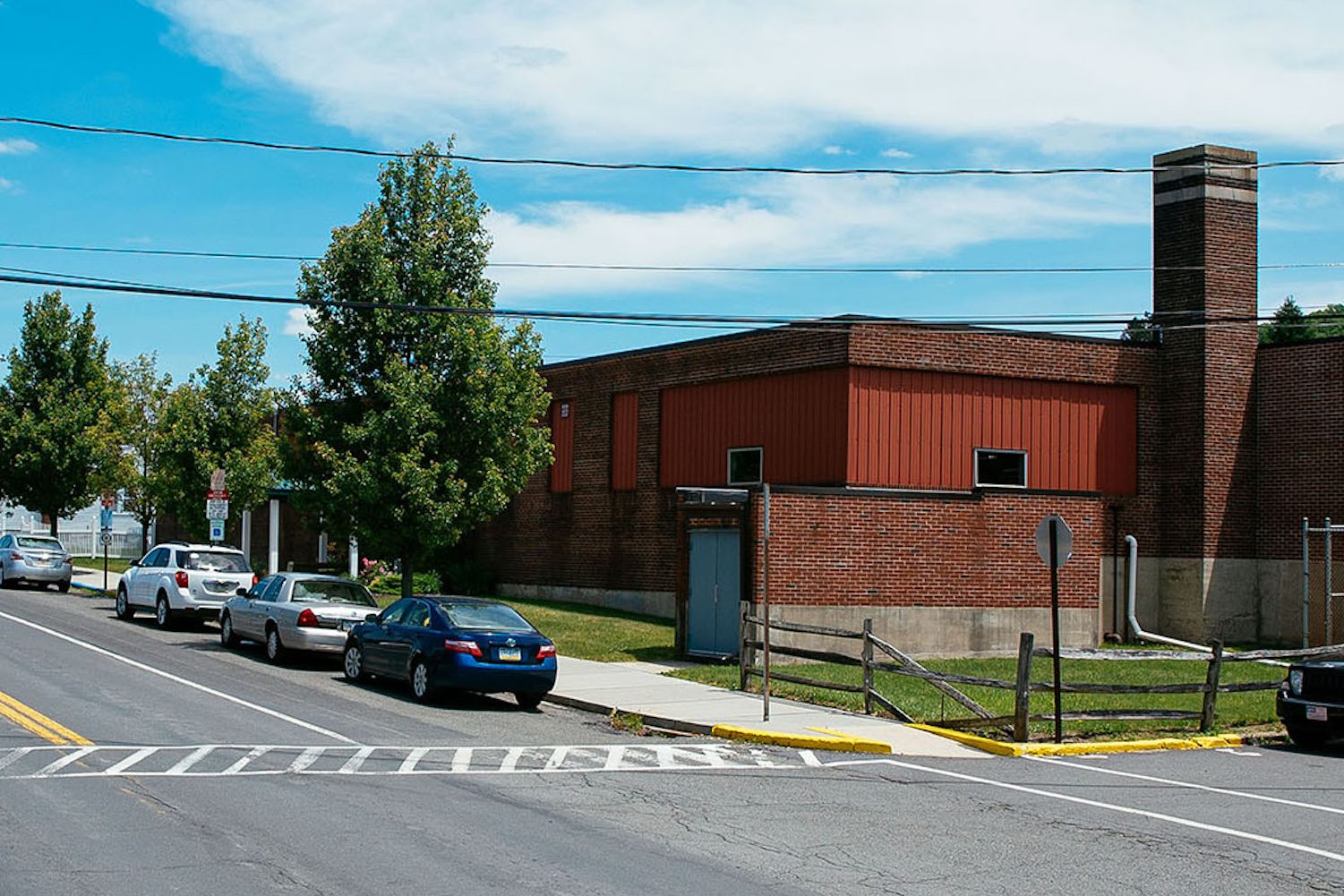Growing up in certain families, it’s not uncommon to hear stories of an old family business subsequently lost to history. When Alex Chatham was a child, he’d sometimes hear his family’s version of this story, about a company bearing the family name that made long-lasting wool blankets that traveled the world.
“It was always part of family lore,” Chatham tells InsideHook. “We always had Chatham wool blankets on every bed growing up and black-and-white photos of my grandfather, who was one of the presidents of the company.”
An industrial designer by trade, Chatham recently set out on a bold project: the revival of Chatham Blankets after many years of dormancy.
“I always had this sense that there was some sort of heyday, a golden age, of Chatham Blankets, and then it disappeared and no one really spoke about it after that,” Chatham says. Following a successful Kickstarter campaign — and an ongoing Indiegogo campaign — Chatham is proceeding on a path that might lead to a revival of that heyday.
While it’s been aided by distinctly 21st century crowdfunding methods, the second act of this blanket company’s life is deeply rooted in its history. The first blanket produced by the new version of the company hearkens back to an 1894 design: a cleanly made pattern of blue lines on a white base. That some looks never go out of style is a dictum that applies just as well to wool blankets as it does to menswear, it turns out.
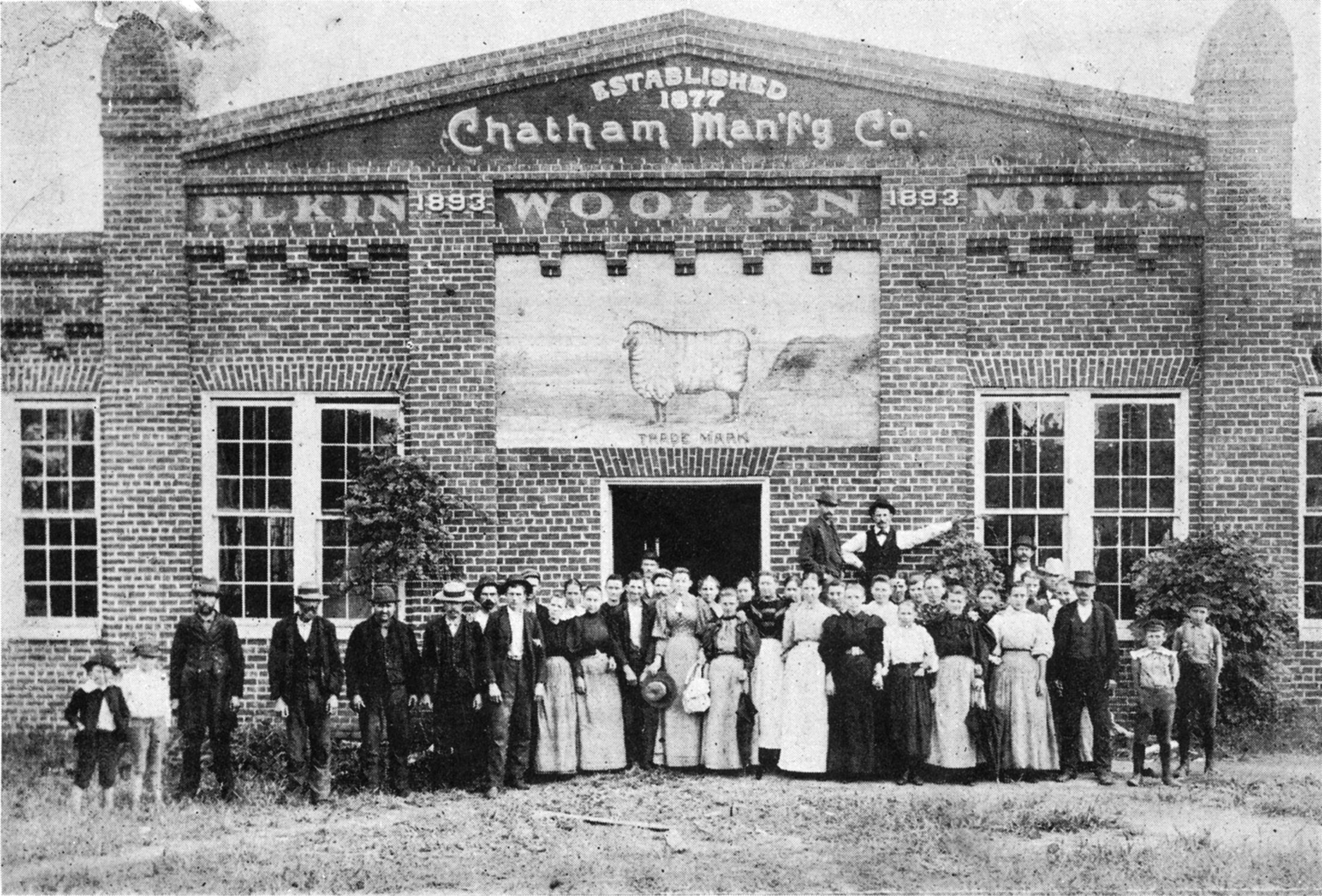
“As Americans, our DNA and part of our legacy is industrialization,” Chatham explains. “We were the greatest industrial nation in the world by far, and I think that that is an intense part of our culture.”
When it comes to Chatham Blankets and the Chatham Manufacturing Company, that narrative of industrialization is front and center. Alexander Chatham founded the company, and its first mill became operational in 1877. Then based in Elkin, North Carolina, the Chatham Manufacturing Company was a prominent local employer for decades, and Chatham Blankets were sold around the country. They also helped keep soldiers warm during World War I and World War II. The company left family ownership in 1988 and ceased to exist shortly thereafter; this also meant the end of the mill in North Carolina that had employed so many people over the years.
As Chatham explains it, this represented a worrying development for the country. “I think the further that we’ve gotten from there being factories in every town, the more we’ve spent time philosophizing about it and thinking about it and correlating that with our cultural values — which at times look bleak, but I think are, as a whole, good values — I think that’s where those two things come together.”
As Chatham looked for mills to manufacture the next generation of Chatham Blankets, he soon found that deindustrialization made this process more complex than he’d expected. He describes the process of researching several options before deciding on an up-and-coming mill in Connecticut. In the midst of Chatham’s research, one of the only woolen mills still operational in the United States — Woolrich’s mill in Pennsylvania — shut down, adding another name to the long list of businesses claimed by deindustrialization.
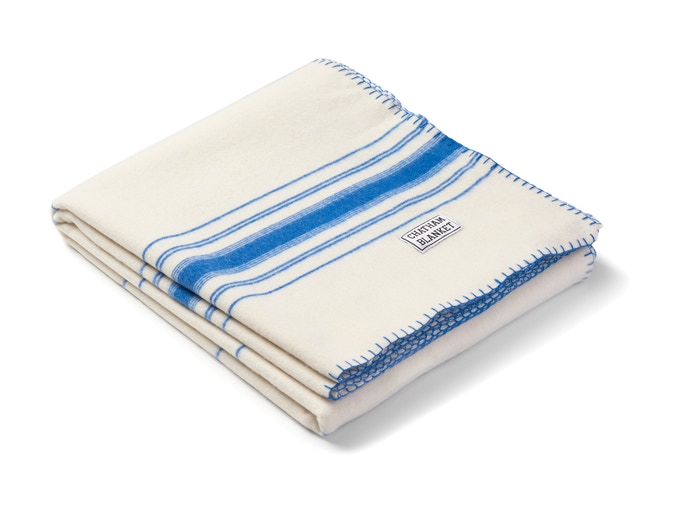
Chatham cites his family’s history as a significant factor in leading to his career in industrial design. “I’ve always been obsessed with industrial production,” he says. “Growing up, my dad always had this stack of vintage Fortune magazines lying around, which are all articles and pictures of old factories and mines and industrial concerns. That always shaped my ideas about what I wanted to do, and going into industrial design felt really natural.”
It’s one of many ways that history has benefitted Chatham on this venture. When researching the history of the Chatham Manufacturing Company, he encountered the book Elkin by Dr. S. Jason Couch, a history of the town and its industries.
“I contacted the author and it turned out that he had sort of his own collection of Chatham Blankets and Chatham material,” Chatham recalls. “One of those things was this ancient catalog that he had from 1894. When I found that, I said, well, this is the story that I had been looking for, and this is the design. And that’s what I went with.”
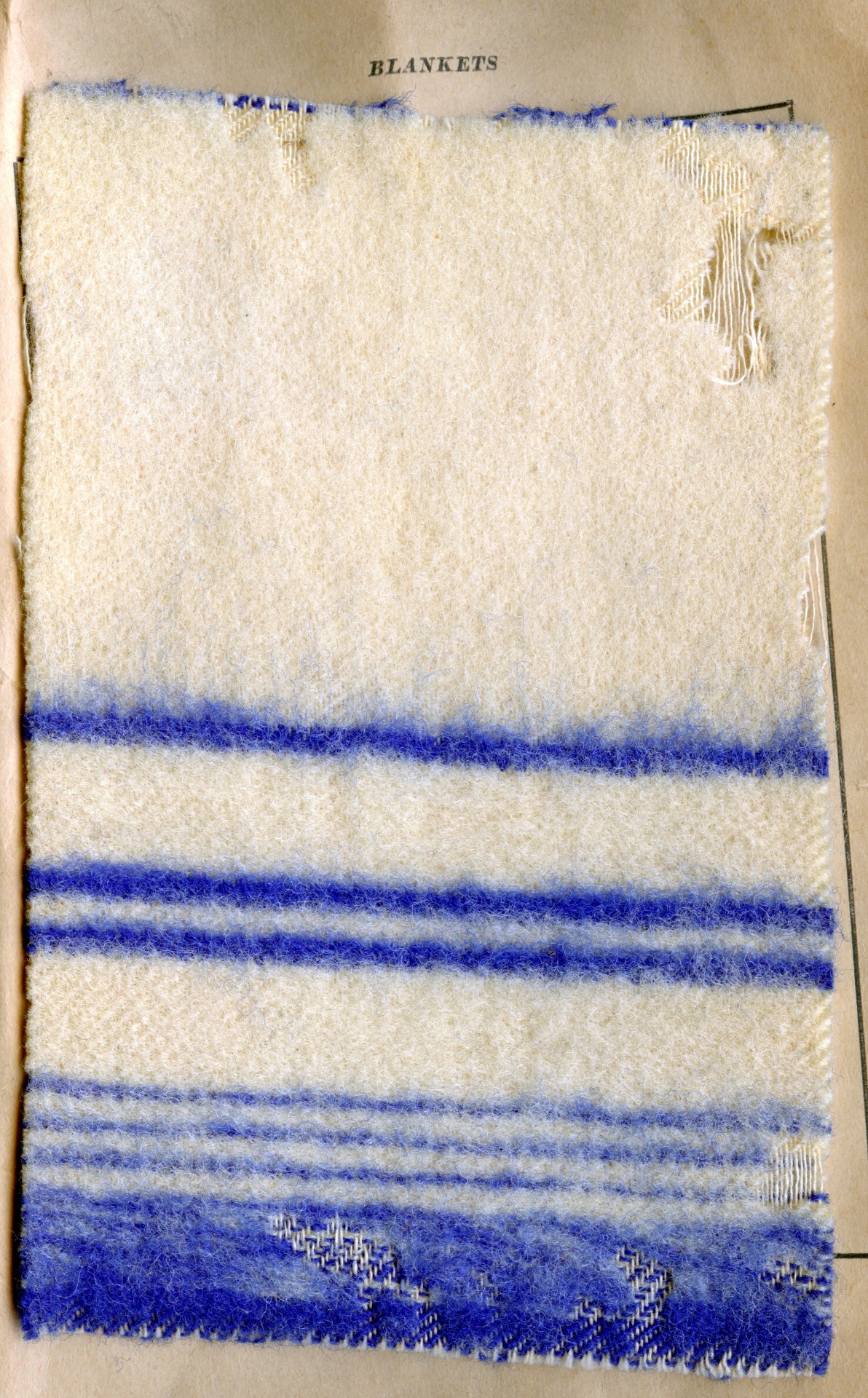
As for Chatham’s approach to manufacturing, he emphasizes the quality and the process of the new blankets. “I’m making something that’s the way that I think that it should be made and charging the money that I should charge to do that,” he says. “It’s not the cheapest thing, but it’s — in my view — the right thing.”
With the question of cost also comes the question of durability. Here, Chatham points to his earlier work as an industrial designer as having shaped his perspective. “I’ve worked on a couple of products where I’ve designed a version and then worked on designing the next version and seeing how disposable products can be,” he explains. “It’s a personal reaction to that to want to make things that are going to last as long as possible.”
That durability is something that the original Chatham Blankets were known for — and with Chatham reviving the business, it’s something he’s had to field questions on. “Having the website up, I still get inquiries occasionally about a 40-year-old blanket that someone has, and they’re wondering where they can get another one,” Chatham says. “I have to tell them that doesn’t really exist anymore.”
Chatham might not be saying that too much longer, though. His plans for the rebirth of Chatham Blankets don’t stop at the model he’s relaunching the business with — so if things go according to plan, the relaunch could be part of an even bigger moment for American industry.
This article appeared in an InsideHook newsletter. Sign up for free to get more on travel, wellness, style, drinking, and culture.
